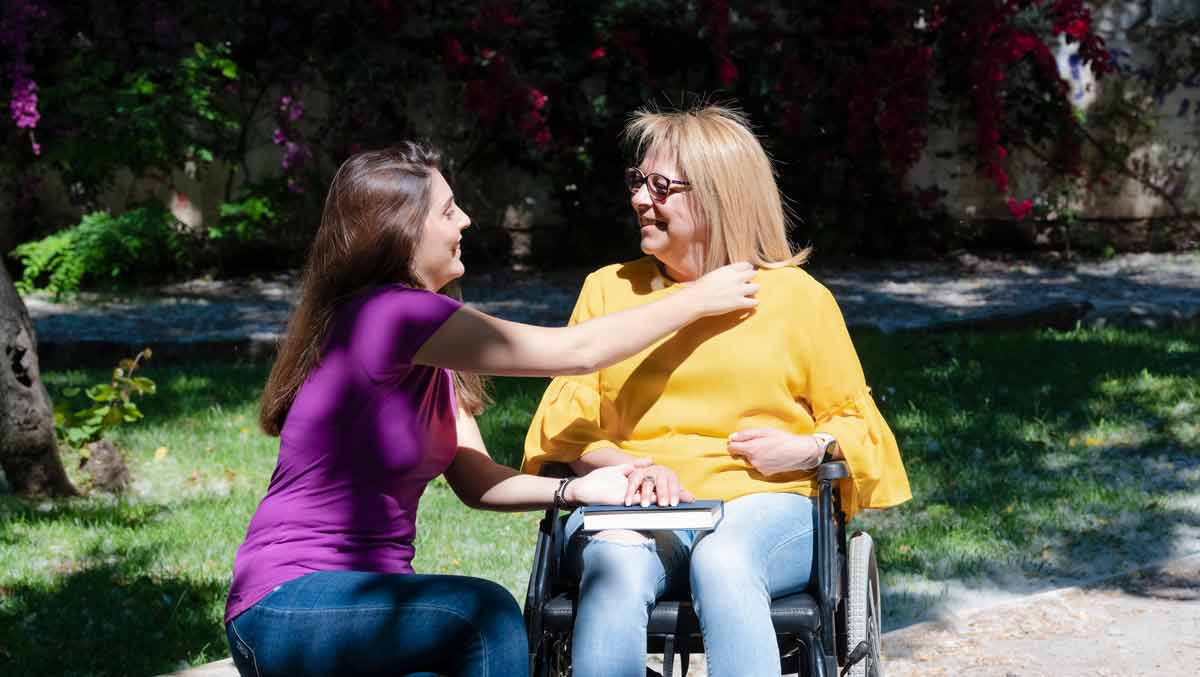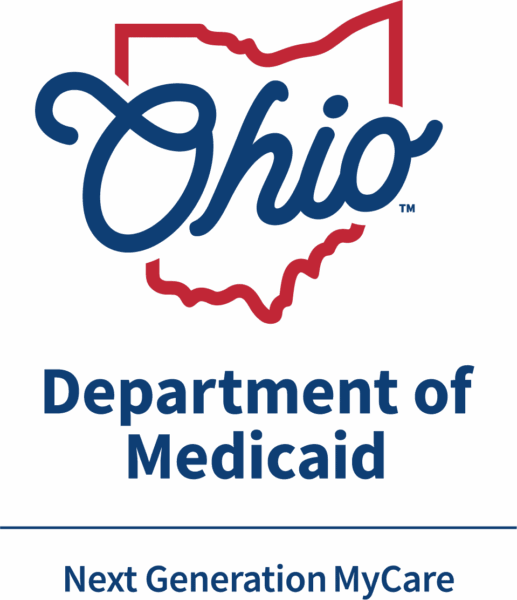Understanding the Role of a Family Caregiver
A family caregiver is an individual who provides care and assistance to a relative who needs help with daily living tasks due to aging, disability, or illness. The services provided by qualified family members or caregivers may include:
- Personal care (bathing, dressing, grooming)
- Assistance with mobility and transfers
- Medication management
- Meal preparation and feeding
- Light housekeeping and laundry
- Companionship and emotional support
- Transportation to appointments and errands
As a family caregiver, you’ll need to be compassionate, patient, and adaptable, as each person’s needs and preferences will vary. Additionally, you’ll need to be prepared to navigate the various programs and requirements necessary to become a paid caregiver for your family member in Arizona.

Programs That Pay Family Caregivers in Arizona
Several programs in Arizona allow family caregivers to receive compensation. Each program has specific eligibility criteria and may require additional training. Let’s explore the main programs that support family caregivers.
Arizona Long Term Care System (ALTCS)
The Arizona Long Term Care System (ALTCS) is a Medicaid program that offers long-term care services to eligible Arizona residents who are elderly or have disabilities. This program includes the Agency with Choice (AWC) option, which allows participants to work with an agency to select and manage their caregivers, including hiring family members as paid caregivers.
- Eligibility Requirements: ALTCS has financial and medical eligibility criteria. Financial requirements are based on income and assets, while medical criteria require that the person needs a nursing home level of care.
- Application Process: To apply, contact the ALTCS office at (888) 621-6880 for an initial eligibility screening. Once your family member is enrolled, they can opt for the AWC program, allowing them to hire and manage family members as their paid caregivers under the supervision of an approved agency.
- Training: AWC caregivers may need CPR and First Aid certifications, as well as any additional training required by the agency and the ALTCS program.
Arizona Department of Economic Security (DES) – Division Of Developmental Disabilities
The Division of Developmental Disabilities (DDD) supports individuals with developmental disabilities across all ages. Through DDD, family members of individuals with disabilities may qualify for support services and reimbursement.
- Eligibility Requirements: To qualify, the individual must meet DDD’s disability criteria. Call the DDD office at (844) 770-9500 for details on the application process.
- Application Process: Contact the DDD office to begin the application. You may also need to work with a Certified Medicaid Planner to ensure all requirements are met.
Veterans Affairs (VA) Programs
If your loved one is a veteran, there are specific VA programs that provide caregiver compensation and support.
The VA Aid and Attendance (A&A) Benefit and the VA Housebound Benefit are both additional monthly payments that can be added to a veteran’s VA pension to help cover the cost of care. These benefits can be used to pay a family member for caregiving services, although the process for doing so is not formally outlined by the VA.
The VA Program of Comprehensive Assistance for Family Caregivers (PCAFC) provides financial support, healthcare benefits, and other resources to eligible family caregivers of veterans who were injured in the line of duty on or after September 11, 2001. To qualify as a paid caregiver under the PCAFC, you must be the primary provider of personal care services for the eligible veteran and complete the necessary application and training requirements.
- Veteran Directed Home & Community Based Care (VDC): VDC provides veterans with a flexible monthly care budget. Veterans can use this budget to hire family members as paid caregivers.
- Aid and Attendance (A&A) Benefit: A&A provides up to $3,261 per month to veterans who need long-term care. These funds can be used to pay family caregivers.
- Program of Comprehensive Assistance for Family Caregivers (PCAFC): The PCAFC offers a monthly stipend, health care, training, and respite care to caregivers of veterans injured in the line of duty post-September 11, 2001.
For more information or to apply, contact the VA Caregiver Support Line at (855) 260-3274.
Steps to Becoming a Paid Caregiver for a Family Member in Arizona
Once you’ve identified the appropriate program for your situation, follow these steps to become a paid caregiver for your family member in Arizona:
Step 1: Determine Your Family Member’s Eligibility
First, determine if your family member is eligible for one of the programs mentioned above. This may involve applying for ALTCS, contacting the DDD Division of the Arizona DES, or working with the VA to assess their eligibility for veterans’ benefits.
Step 2: Complete the Necessary Training Requirements
Depending on the program, you may need to complete specific training requirements to become a paid caregiver for your family member. This could include CPR and First Aid certification, as well as any additional training mandated by the program. FreedomCare will pay for this certification and training.
Step 3: Develop a Care Plan
Work with your family member and any relevant healthcare professionals to develop a comprehensive care plan outlining your relative’s needs and the services you’ll be providing as their paid caregiver. This care plan will help ensure that you’re meeting your loved one’s needs and serving as an essential reference for any required documentation or reporting.
Step 4: Complete Program-Specific Application and Enrollment Processes
Each program will have its own application and enrollment process, which may include submitting documentation, participating in assessments, and completing any necessary agreements or contracts. Be sure to follow the specific requirements for the program you’re pursuing to ensure a smooth enrollment process.
Step 5: Begin Providing Care and Receiving Payment
Once you’ve completed the necessary training, developed a care plan, and enrolled in the appropriate program, you can begin providing care to your family member and receiving payment for your services.
Tips for Success as a Family Caregiver
Becoming a paid caregiver for a family member can be both rewarding and challenging. Here are some tips to help you succeed in your caregiving role:
- Set boundaries: Establish clear boundaries between your caregiving role and your personal life to maintain a healthy work-life balance.
- Communicate openly: Keep an open line of communication with your family member, healthcare professionals, and any other relevant parties involved in your loved one’s care.
- Stay organized: Develop a system for managing important documents, medication schedules, appointments, and other caregiving responsibilities.
- Take care of yourself: Prioritize self-care, including regular exercise, a healthy diet, and sufficient sleep, to ensure that you can provide the best care possible for your family member.
- Seek support: Connect with other family caregivers through support groups, online forums, or local organizations to share experiences, advice, and encouragement.
Additional Support Programs
Arizona offers more than just financial support; caregivers also have access to valuable services and resources.
- Arizona Caregiver Coalition: A nonprofit that provides respite care, caregiver support groups, training, and more. Contact them at (888) 737-7494 for more information.
- Area Agencies on Aging (AAA): Local AAAs offer information, referrals, and support services, including respite care and caregiver training. You can find more information here: https://des.az.gov/services/older-adults/area-agency-on-aging-locations
- You may also find helpful the following guide prepared by the Arizona Department of Economic Security (DES): https://des.az.gov/sites/default/files/dl/DES-1235A.pdf?time=1730926712055

Frequently Asked Questions (FAQ)
- Can spouses be paid caregivers in Arizona?
○ Yes, they can. Legal guardians or direct representatives, however, cannot.
- How much can I expect to be paid?
○ Compensation depends on various factors, including the program, level of care, and local wage standards.
- What if my loved one’s needs change?
○ If your loved one requires additional care, you can update their care plan. Speak to your case manager about adjusting services to accommodate these needs.
Conclusion
Becoming a paid caregiver for a family member in Arizona can be a fulfilling and meaningful way to support your loved one while also receiving financial compensation for your time and efforts. By understanding the various programs available, completing the necessary training and application processes, and following the tips for success outlined in this guide, you’ll be well on your way to becoming a successful family caregiver in Arizona.






